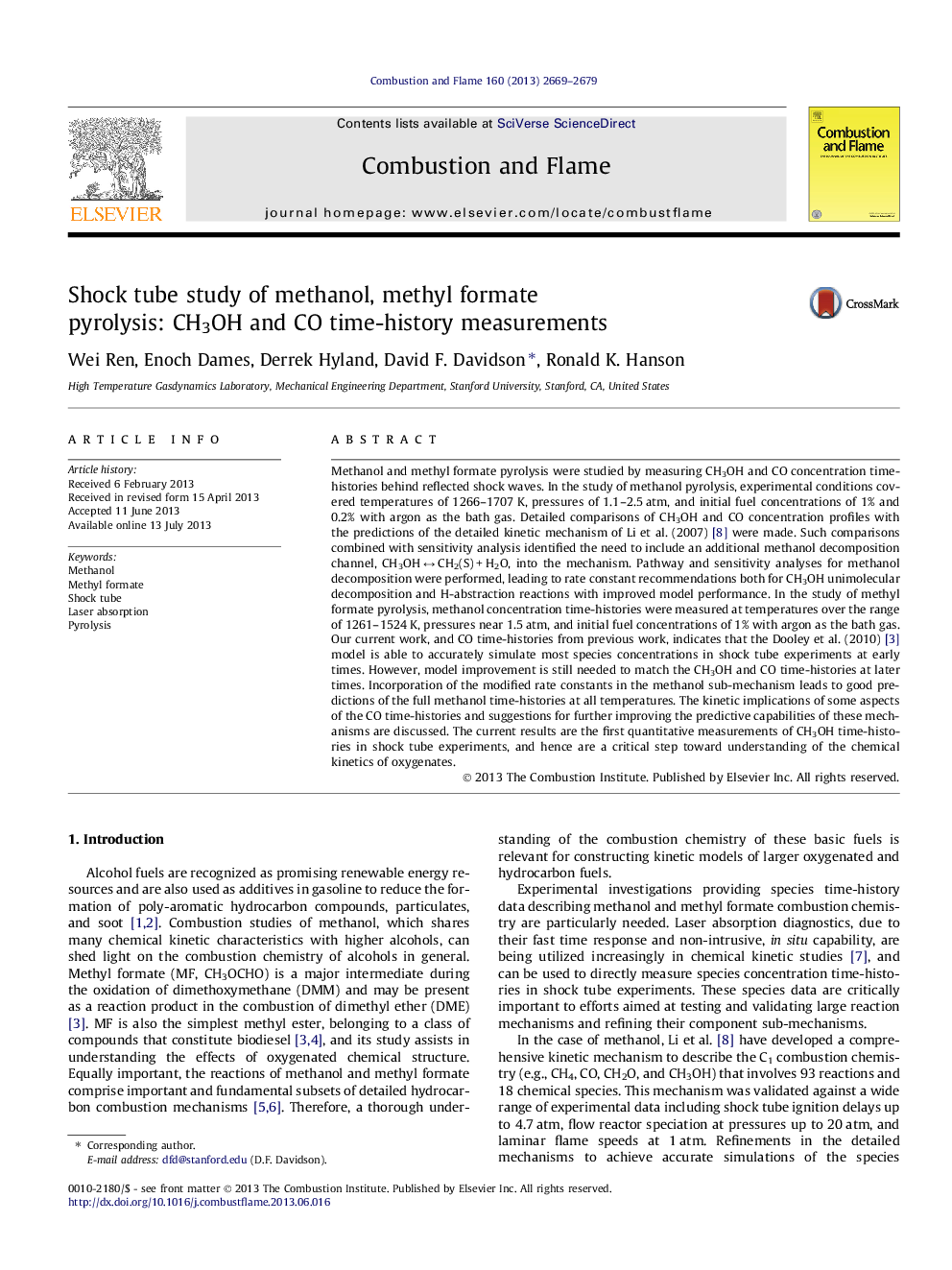| Article ID | Journal | Published Year | Pages | File Type |
|---|---|---|---|---|
| 166784 | Combustion and Flame | 2013 | 11 Pages |
Methanol and methyl formate pyrolysis were studied by measuring CH3OH and CO concentration time-histories behind reflected shock waves. In the study of methanol pyrolysis, experimental conditions covered temperatures of 1266–1707 K, pressures of 1.1–2.5 atm, and initial fuel concentrations of 1% and 0.2% with argon as the bath gas. Detailed comparisons of CH3OH and CO concentration profiles with the predictions of the detailed kinetic mechanism of Li et al. (2007) [8] were made. Such comparisons combined with sensitivity analysis identified the need to include an additional methanol decomposition channel, CH3OH ↔ CH2(S) + H2O, into the mechanism. Pathway and sensitivity analyses for methanol decomposition were performed, leading to rate constant recommendations both for CH3OH unimolecular decomposition and H-abstraction reactions with improved model performance. In the study of methyl formate pyrolysis, methanol concentration time-histories were measured at temperatures over the range of 1261–1524 K, pressures near 1.5 atm, and initial fuel concentrations of 1% with argon as the bath gas. Our current work, and CO time-histories from previous work, indicates that the Dooley et al. (2010) [3] model is able to accurately simulate most species concentrations in shock tube experiments at early times. However, model improvement is still needed to match the CH3OH and CO time-histories at later times. Incorporation of the modified rate constants in the methanol sub-mechanism leads to good predictions of the full methanol time-histories at all temperatures. The kinetic implications of some aspects of the CO time-histories and suggestions for further improving the predictive capabilities of these mechanisms are discussed. The current results are the first quantitative measurements of CH3OH time-histories in shock tube experiments, and hence are a critical step toward understanding of the chemical kinetics of oxygenates.
